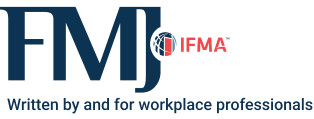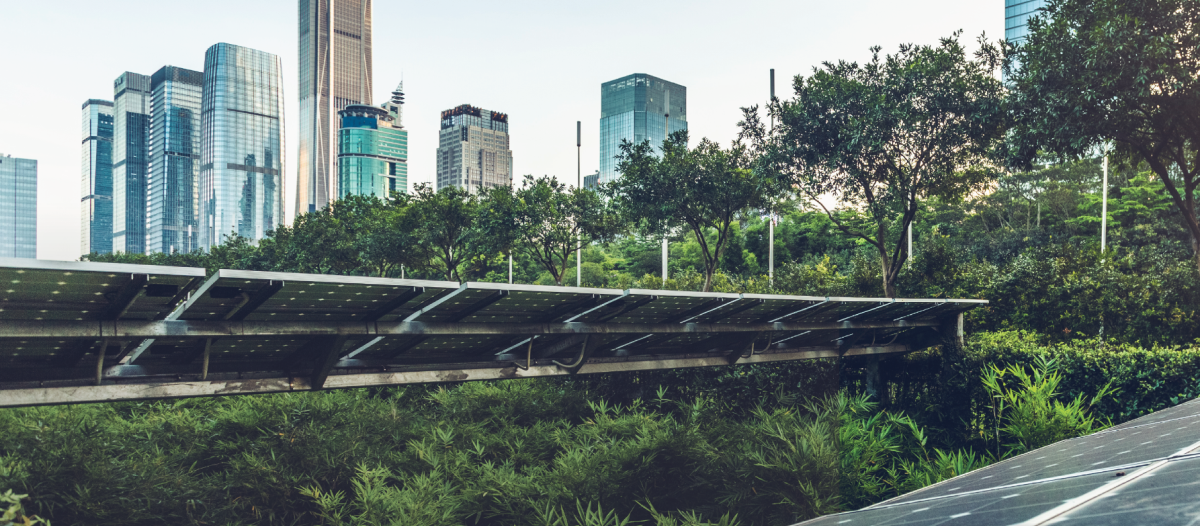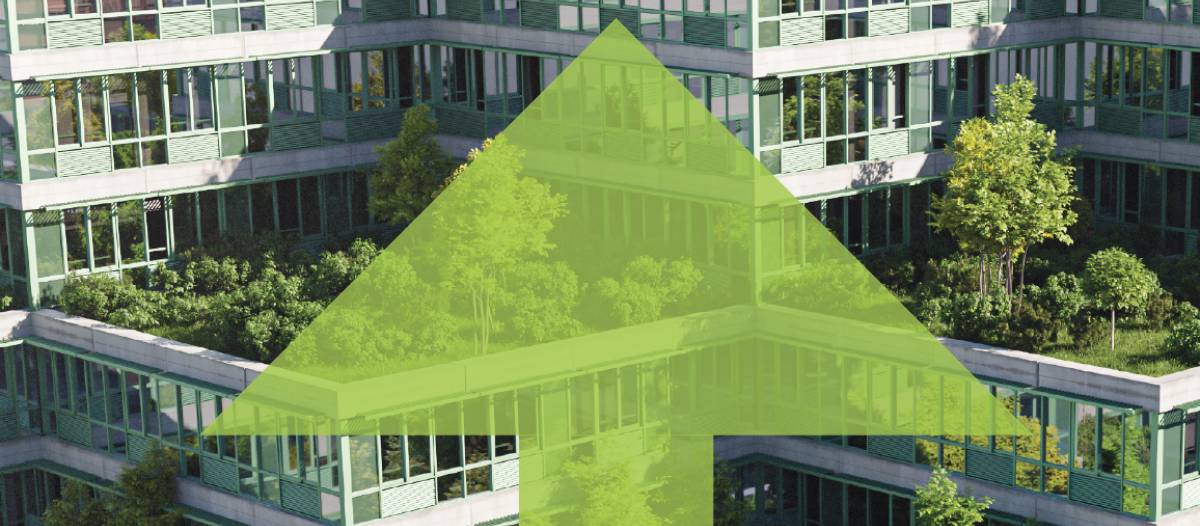IFMA Foundation
FM's impact on U.N.’s global challenges
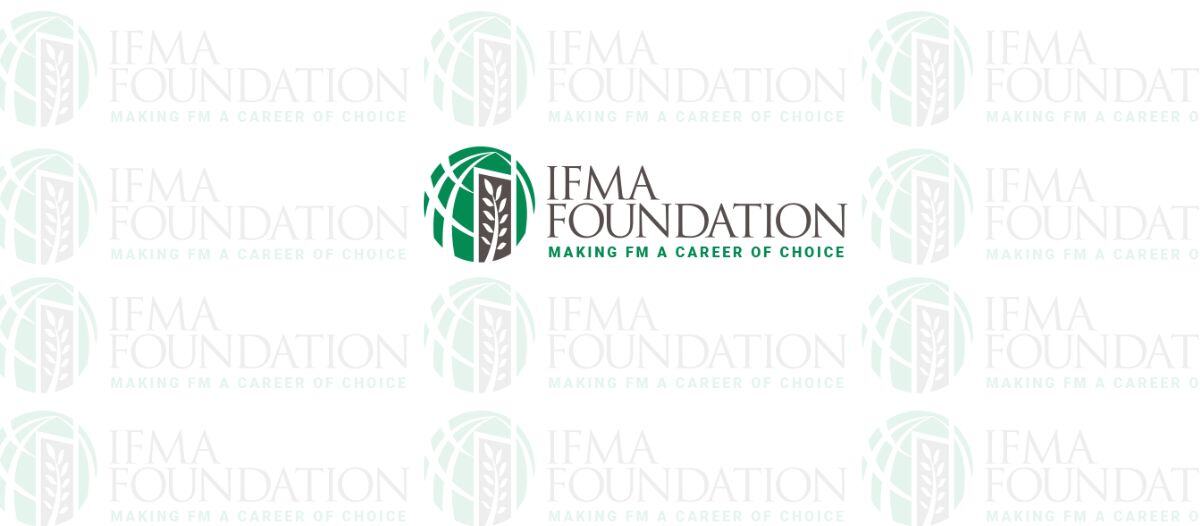
IFMA Foundation as a Liaison with the United Nations
In July 2022, the window of opportunity flung wide open when the U.N. approved the IFMA Foundation to become one of more than 5,400 non-governmental organizations (NGO), granted a Special Consultative Status under the Economic and Social Council (ECOSOC). This remarkable achievement means the Foundation – a strong and vibrant community of scholars, researchers and FM practitioners – has a vast global landscape to explore how to advance its mission to make FM a career of choice and promote education and research within the built environment.
What is ECOSOC?
ECOSOC is the U.N.’s principal body for coordination, policy review, policy dialogue and recommendation on economic, social and environmental issues, and implementation of internationally agreed development goals. As ECOSOC is the only main U.N. body with a formal framework for NGO participation, it is the entry point into the U.N. system for NGOs. It serves as the central mechanism for activities of the U.N. System and its specialized agencies in the economic, social and environmental fields and its supervisory and expert bodies. The council is the U.N.’s central platform for reflection, debate and innovative thinking on sustainable development. This is exactly where FM is expected to add significant value.
The Foundation’s seat at the U.N. table through ECOSOC allows for limitless possibilities to advance the FM profession. The Foundation’s work is centered around improving social equity by making more FM education programs accessible to women, minority communities, the undeserved, the unemployed and the underemployed to fill the much-needed talent gap in the profession. ECOSOC also is particularly interested in strengthening the position of the Global South, the mutual connections within the Global South, and between the Global South and the Global North. Along with IFMA, the Foundation seeks to educate FMs and related practitioners within the built environment on sustainable building practices. This is aligned with the Council's work. Figure 1 shows the structure of ECOSOC, illustrating the vast system for which the Foundation and its global community are now a part.

For now, the Foundation can add value by sharing, disseminating and developing knowledge on FM, to be delivered by the global community. In the words of the U.N.:
“Consultative arrangements are to be made, on the one hand, for the purpose of enabling the Council or one of its bodies to secure expert information or advice from organizations having special competence in the subjects for which consultative arrangements are made, and, on the other hand, to enable international, regional, sub-regional and national organizations that represent important elements of public opinion to express their views.”
— ECOSOC resolution 1996/31, part II, paragraph 20
In a wider context, as an U.N. NGO, the IFMA Foundation’s objective is also to contribute to ECOSOC through awareness raising, development of educational programs, policy advocacy, joint operational projects, participation in intergovernmental process, and in the contribution of services and technical expertise. The Foundation can more specifically:
- Provide expert analysis on issues directly from its experience in the FM field and the built environment;
- Serve as an early warning agent to issues within the built environment;
- Help monitor and implement international agreements;
- Help raise public awareness of relevant issues;
- Play a major role in advancing U.N. goals and objectives; and
- Contribute with essential and new information on FM at U.N. events
The position of IFMA Foundation within the ECOSOC and the main tasks that need the attention and expertise of the FM community have been established. As a next step, the strategic focus of the contributions to the U.N.’s Sustainable Development Goals (SDGs) requires further clarification.
Sustainable Development Goals and FM
In its 2030 Agenda for Sustainable Development, the U.N. identified 17 goals for which the FM voice can play a critical role in providing practical solutions to its achievement. The U.N. describes the SDGs as “a universal call to action to end poverty, protect the planet, and ensure that all people enjoy peace and prosperity. It is expected that FM’s impact on SDGs will be in the implementation of these goals; for instance, knowledge that identifies barriers hindering SDGs’ implementation, knowledge that demonstrates actual implementation, and knowledge about best practices that is disseminated in the FM field and beyond. This is a call to action for the FM community to identify possibilities and become engaged in new and relevant approaches.

Figure 2 The 17 U.N. Sustainable Development Goals (SDGs).
Source: un.org/en/sustainable-development-goals
There are many areas in which the IFMA Foundation is well poised to contribute to SDG advancement; specifically, in creating a platform for FMs to apply their competencies to address challenges and shape the future of the built environment. FM can have a particular influence on the economic, social and environmental pillars of sustainable development that impacts global societies.
Within the framework of the FM global community, this can be done through industry presentations, publications and Global Workforce Initiative (GWI) educational programs offered through the IFMA Foundation’s Accredited Degree Program (ADP), Facility Management Registered Degree Programs (RDP) and Facility Management Talent Development Pipeline (TDP) programs. Moreover, the Foundation can use its seat at the U.N. to advocate for FM’s critical importance in influencing the practices and solutions for creating a sustainable built environment.
FM can:
- avoid waste and promote responsible consumption and production with logistic, event and spatial expertise, while also helping others with the redistribution of food and housing;
- contribute to the SDGs with buildings that promote and advance the health and well-being of users;
- demonstrate, as a network of researchers and educators, the added value of FM, and by doing so, the profession can contribute to a resilient built infrastructure, promote inclusive and sustainable industrialization, and foster innovation;
- disseminate these innovations among the generations to come; as a sector this allows FMs to learn and improve;
- support gender equality, stimulating fair and equal payment for decent work and economic growth as a next step;
- share expertise to provide clean water and sanitation, affordable and clean energy, and safe, peaceful and resilient communities to reduce inequality within and among countries;
- showcase how to prepare for and manage a built environment that is ready for excessive temperatures, water levels, winds, fires and pandemics;
- purchase with logistic systems responsible, nonpollutive and circular goods and services.
Overall, the strong ties within the FM community allow it to implement the 17 SDGs and to revitalize the global partnership for sustainable development.
The Foundation’s UN NGO Task Force
The Foundation has established a U.N. NGO Task Force that seeks to seize and leverage every opportunity afforded by the NGO status. The task force is working to understand ECOSOC and determine how best to engage, derive and add value to their work. At the task force’s inaugural meeting, it was decided to explore potentially relevant U.N. agencies, work and networks, all performed by different task force members.

As an accredited NGO, the IFMA Foundation can participate in several events, including the sessions/meetings of ECOSOC, its functional commissions and other subsidiary bodies. The role of the task force is to ensure the Foundation meets its obligations through upholding the U.N. and ECOSOC principles, submission of a quadrennial report, and demonstrating that the NGO made a positive or effective contribution to the work of the U.N., ECOSOC or its subsidiary bodies within the past three years to maintain the Foundation’s U.N. NGO consultative status. Doing so will avoid suspension or revocation of its status.
The Foundation UN Task Force Goal: LISTEN+SPEAK+ACT
The IFMA Foundation seeks to establish a strong presence as an NGO by
- being noticed and recognized – submitting written statements at the various forums available,
- contributing to oral presentations at meetings,
- participating through attendance at meetings, listening in, speaking and
- learning about the various committees and agencies within the ECOSOC system.
The Foundation task force has identified U.N. committees and agencies to explore as its current focus and priority for engagement. The committees are:
- Sustainable Development, Science and Technology for Development,
- Social Development and Status for Women.
The agencies consist of:
- International Labor Organization (ILO),
- United Nations Educational, Scientific and Cultural Organization (UNESCO),
- United Nations Industrial Development Organization (UNIDO),
- Food and Agriculture Organization (FAO), and the
- World Health Organization (WHO).
The Foundation will continue raising awareness, developing educational programs and supporting the alignment of the ISO 4100 series of standards for FM with the SDGs. FM can do more to support its global communities and partnerships in achieving the SDGs and the U.N.’s 2030 Agenda through this appointment. Equally, FM standards and programs will benefit from SDG alignment in its ability to support sustainable and resilient societies in urban and rural communities. The Foundation intends to use this global platform to share ideas, learn about international developments, collaborate with other NGOs and form strategic partnerships to influence leaders in government, the private sector and civil society to also share innovation to advance and achieve the United Nations’ 2030 Agenda.
On behalf of the IFMA Foundation U.N. Task Force, FM practitioners, educators, students and scholars are invited to discuss the above topics. Please feel free to bring to the table new ideas, viewpoints and innovations at various IFMA conferences, seminars, webinars and other meetings.
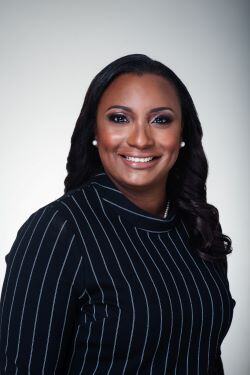
Aykean Forde CFM SFP, FMP, MBA, MA, is the facilities director of The International School Port of Spain in Trinidad & Tobago (Grades Pre-K-12). Forde serves as a member of IFMA's Global Board of Directors, the board liaison for IFMA's Americas Advisory Board, an IFMA Qualified Instructor and a past member of IFMA's Audit Committee. An ambassador of FM, she passionately serves and collaborates with others to positively impact workplace experience while leading organizations towards making their vision a reality. She has also spoken at conferences in Trinidad and Tobago, the Bahamas and the U.S.
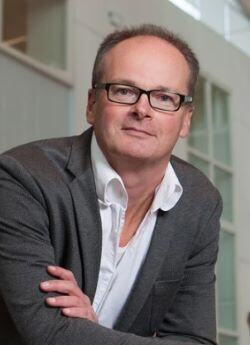
Dr. Mark Mobach, Ph.D. is a professor in facility management at Hanze University of Applied Sciences Groningen, a professor in Spatial Environment and the User at The Hague University of Applied Sciences, and a leading professor of the Hanze Research Centre for Built Environment, The Netherlands. He is actively engaged in connecting facility management with architecture, interior design, real estate and technology for better organizational performance. He is program leader of the research program Healthy Buildings with a focus on education, health care and offices. In 2019 Mobach received the prestigious Dutch Delta Prize for his research in FM; the same year the research center he affiliates was rated excellent. He is a member of the Research Advisory Committee of IFMA, member of the U.N. NGO Task Force of IFMA Foundation and holds several other positions relevant to the field.
Read more on Sustainability and Leadership & Strategy
Explore All FMJ Topics




